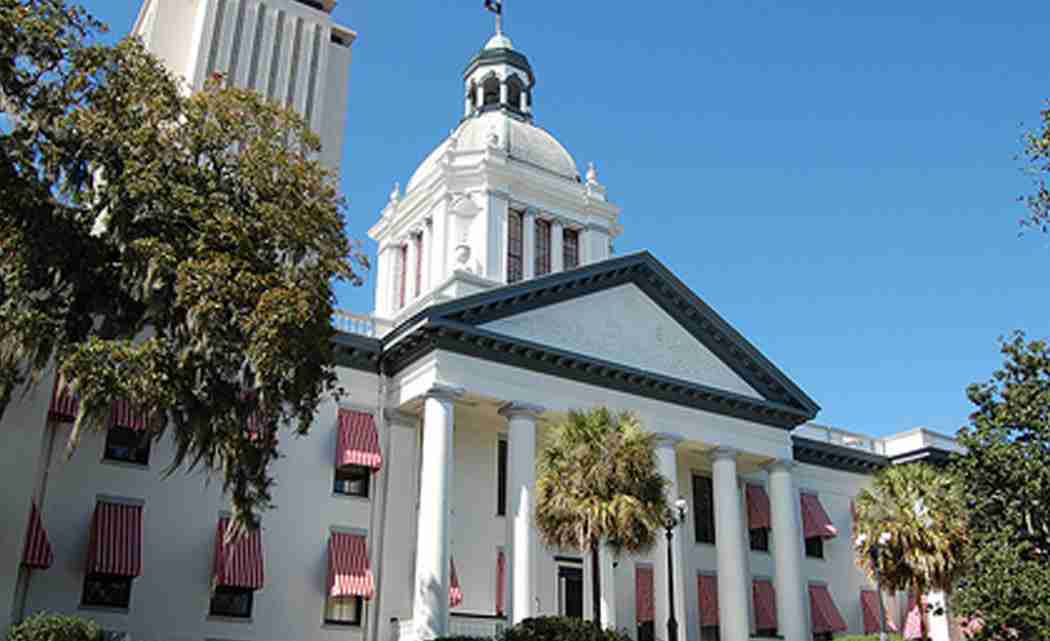By WILLIAM MARCH
Associated Press
TALLAHASSEE, Fla. (AP) _ With a week left in its planned 60-day session, a Republican civil war over health care has stalled the Florida Legislature on its single most important job, completing a balanced state budget.
The budget, tax cuts and education spending are mired in a standoff between the House and Gov. Rick Scott on one side, and the Senate on the other. Legislators are heading for an extended or special session, but with no clear way out of the mess. Both houses have large GOP majorities and Scott is also a Republican.
“We can’t get out on time,’’ House Speaker Steve Crisafulli, R-Merritt Island, said late last week. “That would take miracles at this point.’’
Senate President Andy Gardiner, R-Orlando, vowed to stay in session until the end of the fiscal year, June 30, if necessary.
The underlying conflict: The more-conservative House opposes expanding health insurance for those just above the poverty line as intended by the federal Affordable Care Act, known as Obamacare. The Senate has proposed such a plan in its version of the budget.
Behind-the-scenes bickering got acrimonious last week as House and Senate leaders both held meetings _ the House in secret _ to rally their troops. Meanwhile Scott called in individual Republican senators, threatening to veto pet projects if the Senate doesn’t go his way.
The situation is reminiscent of fiscal standoffs between the Obama administration and congressional Republicans, except that fight is between opposing parties. Some Florida Republicans fear the stalemate will hurt their party’s image.
“Public policy is a message’’ to voters, Sen. Tom Lee, R-Brandon, told reporters. “I think our unwillingness to embrace some of these health care problems that we face could reflect very negatively on us as a party.’’
Here are key issues still facing the Legislature in the remainder of the session:
Budget and LIP funding
Florida gets more than $1 billion a year from the federal government for the Low Income Pool, a $2.2 billion program that helps hospitals statewide serve indigent patients. But continued funding may depend on whether the state enacts a health insurance plan as the Senate advocates.
Lawmakers face a choice: adopt a budget that does without the LIP money; replace it with state tax money; or adopt a plan like the Senate’s.
The disagreement has led to drastically differing budget proposals from the House, $76.2 billion, and Senate, $80.4 billion. The proposals must be identical to pass.
Tax Cuts
The House has passed a $690 million package of 26 tax cuts, including $432 million in telephone and television services taxes, one of Scott’s top session priorities.
But the budget problems threaten that. Late last week, in the first sign of a break in the LIP logjam, the House offered $200 million, most of it from the tax cut package, toward maintaining the LIP program.
Gambling
Gambling revisions are another issue on which there’s no clear path to agreement between the two houses.
State Rep. Dana Young, R-Tampa, filed a major overhaul early on, but as the session nears its end, with approval so far from only two of the three required committees, its odds of passage look increasingly slim.
Meanwhile, a Senate bill is moving authorizing Scott to extend the state’s gambling compact with the Seminole Indian Tribe and allowing slots in Lee and Palm Beach counties. But so far, there’s no outcome to negotiations for a new compact.
Water policy
The Senate is moving toward passage of a comprehensive bill on protection of springs and water resources, while the House has passed and sent to the Senate its own bill. The two have yet to be consolidated, but Gardiner has vowed to complete the leaders’ joint work plan, including new water policy laws.
Amendment 1
Passed with 75 percent of the vote in November, it said a third of all documentary stamp tax revenue should go to conservation land buys, estimated at some $10 billion over 20 years. But the Senate budgets only about $15 million and the House about $8 million for new land purchases under Florida Forever, the state’s main conservation land-buying program, plus $191 million in the House and $177 million in the Senate for debt service on previous purchases, said Will Abberger of the Trust for Public Land.
Alimony
The emotion-laden proposal to end permanent alimony appeared headed for easy passage in a bill designed to avoid a veto by Scott on a similar 2013 measure. But it’s now in question in a last-minute conflict over whether to include a legal presumption, which could be altered due to circumstances, that a divorcing couple should split child custody evenly.
AP-WF-04-26-15 1514GMT













No Comment